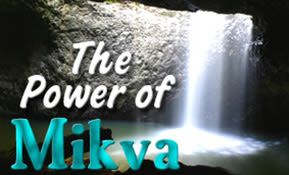Up until recently, going to the Mikvah meant traveling 40 minutes each way, outside the city, then immersing in freezing cold water at 40-degree weather. It is for this reason that there were opinions that were lenient. In current times there are many modern and clean Mikvahs available in almost every city and none of those reasons apply.
In addition there were leniencies given to students of Torah not to have to immerse for extra purity. Firstly there is no one today that even comes close to the levels of Torah needed to excuse him from going to the Mikvah. Secondly all this is only when it comes for extra purity, not so today when everyone is at a state of deep impurity.
The last element is that many of the Tzaddikim in Lithuania would go to the Mikvah privately for reasons of modesty; people who did not see them assumed that they held that immersing in the Mikvah was not necessary.
It is an unforgivable sin that almost all Yeshivas today have no Mikvah and all their students study as Bali Keri (ritually impure) their whole life.
For the original document in Hebrew and the sources click here.
One of the 48 requirements for attaining Torah is purity (see Pirkai Avos 6 – 6).
The following shows the words of our sages, both contemporary and from previous generations, on the subject:
Rav Elazar Papu, the renowned “Pelah Yoetz”
Purity is the way to attain everything in Holiness. Since purity of the body brings about purity of the soul, one has to be very careful to purify his body so he will become stronger in fear, love, happiness and true devotion. If by purifying himself he will attain even a small amount of progress in Divine service it is worth it for him to do thousands of burdensome tasks and to spend much money. Therefore a person should not let anything get in the way of having him immerse in the Mikvah. This helps him to do Teshuva and purify himself from his sins. This is especially true if he became defiled by impurity. Hashem is pure and his messengers are pure. A person that worships Hashem in purity his reward is multiplied by many times. A person who comes to purify himself is helped out by Heaven to understand and progress in Torah, as well as attain fear and love of Hashem.
The Words of Rabbi Chaim Kanievsky, zt”l
In his Sefer Archos Yosher Rabbi Kanievsky writes that the opinion of many of the past sages was that the Tivilah of Ezra (required immersion in mikva after any semen release) was discontinued only for the study of Torah, however it is forbidden to pray until one immerses in the Mikvah. This is the opinion of Rabbi Hai Gaon and Rabbenu Chananel and many other Rishonim. Even the Rambam who wrote that they nullified it totally, was attacked for this by the sages of Babylonia and he replied to them that of course it was never nullified for even one second, however he could only write in his books what can be extracted as a direct Halacha. All later sages wrote that a person that is accustomed to immerse will come across much blessing. Even the Rambam himself writes that it is the common custom in Spain that a Baal Keri does not pray until he rinses himself.
In the Sefer Shalos Uteshuvos Min Hashamam (One of the Bali Tosfos who received divine answers) he asked if it was true that one can be lenient with the Tevilah of Ezrah. They answered him that prayer is like a sacrifice and is it permissible to bring a sacrifice while one is impure. This causes the length of the exile, for if the Prayers of Yisroel were proper they long ago would have been answered.
In the Magid Masharim from the Bais Yosef the Angel tells warns him that one should not prevent from immersing when he is a Baal Keri for the reward for doing so is great. The Holy Arizal writes that the most necessary element needed to attain Torah is immersing in the Mikvah so that he is pure at all times. In Brachos it says that whoever is careful about this lives an extended life. Many Gedolim never missed a day of going to the Mikvah in their life as is brought down in their life stories. I (Rabbi Kanievsky ) saw in one sefer (book) that all the Sefarim that became popular and wide spread amongst the Jews was only since their writers were careful about immersing in the Mikva. Nowadays that the Mikvas are very accessible and it is very easy to immerse for whoever it is possible he should be careful in doing so.
They asked Rabbi Chaim Kanievsky, “A person that does not have time to immerse, can he take out time from his studies to do so?” Rabbi Kanievsky answered “Whoever wants may do so as long as he is not stealing from the kollel.”
Rabbi Chaim Kanievsky also said that there is a reason to immerse in the Mikvah even when one is not impure since it still greatly raises his level of purity.
The words of the Steipler Z”L
A person should immerse in the Mikvah regularly and Tivilat Ezra should be as if it is mandatory. This brings purity to the soul and holiness to ones mind.
This brings purity to the soul and holiness to ones mind.
The Steipler Z”L would go to the Mikvah every day including Shabbat. He also built a Mikvah in his house on Rashbam 21 and then in his house on Rashbam 10 in Bnai Brak.
He was once asked why his Sefarim became accepted across the Jewish nation. He answered that it was because he always immersed in the Mikvah before he began writing them. Rabbi Chaim Kanievsky also relates that his father told him so.
The Chazon Ish Z”L
The Chazon Ish was very careful about immersing in the Mikvah It is well known that he built a Mikvah in his house that was located on 31 Chazon Ish St. in Bnai Brak. Rabbi Chaim Kanievsky relates that the Chazon Ish would always tell people to immerse when they were impure and on Erev Shabbat. Rabbi Shmuel Auerboch relates that one of his friends was once by the Chazon Ish and he commanded him to immerse in the Mikvah. He also tells over that his father was very careful about going to the Mikvah.
The Chazon Ish was very careful about immersing in the Mikvah It is well known that he built a Mikvah in his house that was located on 31 Chazon Ish St. in Bnai Brak. Rabbi Chaim Kanievsky relates that when they were impure and on Erev Shabbat. Rabbi Shmuel Auerboch relates that one of his friends was once by the Chazon Ish and . He also tells over that his father was very careful about going to the Mikvah.
Rabbi Elazar M. Shach Z”L
When Rabbi Shach was younger he would go to the Mikvah every day. Even when Rabbi Shach became older he would always go to the Mikvah on Tuesdays before giving the Shiur Klali. Rabbi Shlesinger tells over that one week the driver did not arrive and Rabbi Shach walked to the Mikvah by foot.
Even when Rabbi Shach became older he would always go to the Mikvah on Tuesdays before giving the Shiur Klali. Rabbi Shlesinger tells over that one week the driver did not arrive and Rabbi Shach walked to the Mikvah by foot.
Rabbi Shach would go to the Mikvah every Erev Shabbat up until ten years before he passed away.
A number of students from Ponavich asked Rabbi Shach if they should go to the Mikvah every day. He replied that they should definitely go for it is a very important thing however they should be careful not to miss prayers in the Yeshiva.
Sefer Hachinuch
Mitzvah number 175 is to immerse in the waters of the Mikvah and then we will become purified from the different impurities, as it says he shall rinse his flesh… This teaches us that one cannot purify himself only by immersing in the water, we are commanded to do so when we want to purify ourselves. It is not the way of a righteous person to remain impure for impurity is disgusting and purity is very well liked. A person’s soul rises and cleanses itself through purity.
The words of the Rishonim
Rabbenue Yonah – “Every one agrees that ones prayers are more accepted if he goes to the Mikvah.”
The Rosh –“Do not pray with unclean hands and without purity for your prayers will not be accepted.”
Rabbenue Tam – “His body should be clean and pure from all impurity he should be regular in cleansing he will then succeed for cleansing the body cleanses the heart.
The Meiri – “It is written that the words of Torah do not accept impurity, nevertheless whoever is stringent will see much blessing… In addition this also saves a person many times from sinning.
The Rambam – “The ignorant person that accused me of not being careful of purifying my body is a liar, for I call witness Heaven and Earth that I have never refrained from doing so.”
To be continued.










Tell us what you think!
Thank you for your comment!
It will be published after approval by the Editor.